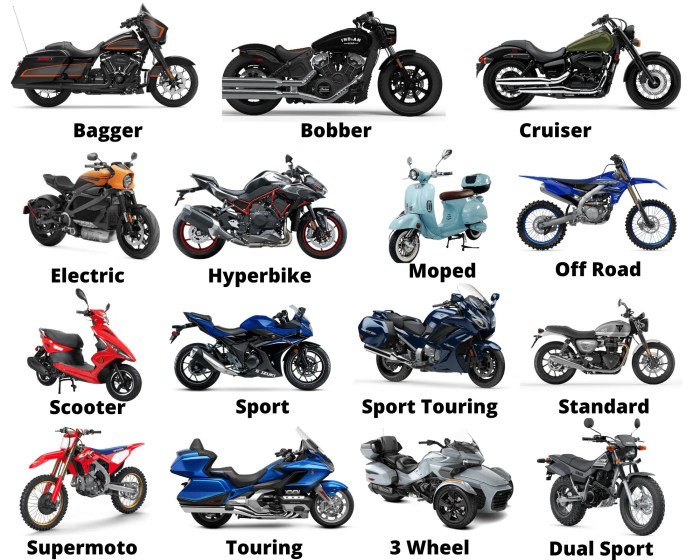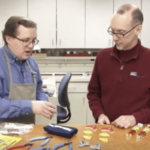How To Balance Motorcycle Hobbies With A Legal Career: The roar of the engine and the gavel’s thud—seemingly disparate sounds, yet for some, both are the rhythm of a fulfilling life. Juggling the demands of a high-pressure legal career with the thrill of motorcycle riding requires meticulous planning, unwavering discipline, and a keen understanding of risk management. This guide explores the strategies necessary to navigate this unique balancing act, ensuring both professional success and personal passion thrive.
From crafting a detailed weekly schedule that seamlessly integrates legal work and motorcycle adventures to developing a robust financial plan that accommodates the expenses of both, we delve into the practical aspects of this dual pursuit. We’ll examine effective time management techniques, stress-reduction strategies, and methods for mitigating the inherent risks associated with both professions. Ultimately, the goal is to demonstrate that a thriving legal career and a passionate motorcycle hobby are not mutually exclusive, but rather complementary elements of a well-rounded and fulfilling life.
Physical and Mental Well-being

Balancing a demanding legal career with the thrill of motorcycling requires a holistic approach to well-being. Neglecting physical and mental health can lead to burnout, decreased performance in both professional and recreational spheres, and increased risk of injury. A proactive strategy is crucial for maintaining peak performance and enjoying both aspects of life to the fullest.
Fitness Plan for Lawyers and Motorcyclists
A fitness regimen must account for the sedentary nature of legal work and the physical demands of riding. The goal is to build strength, endurance, and flexibility, all crucial for safe and enjoyable motorcycling. A balanced program might include strength training focusing on core strength (essential for bike control), upper body strength (for maneuvering and stability), and lower body strength (for managing the bike’s weight).
Cardiovascular exercise, such as running or cycling, improves stamina, vital for longer rides. Yoga or Pilates enhance flexibility and balance, reducing the risk of injury. Ideally, this plan should incorporate at least three strength training sessions and two cardio sessions per week, with flexibility training incorporated daily. Remember to consult with a physician or physical therapist before starting any new fitness program.
Stress Reduction Techniques
The legal profession is notoriously stressful. Incorporating stress-reducing techniques is paramount for both mental and physical health. Mindfulness meditation, even for just 10-15 minutes daily, can significantly reduce stress levels and improve focus. Regular physical activity, as described above, also serves as a powerful stress reliever. Engaging in hobbies outside of work and motorcycling, such as reading or spending time in nature, provides valuable mental breaks.
Techniques like deep breathing exercises can be practiced throughout the day to manage immediate stress responses. Seeking professional help through therapy or counseling is not a sign of weakness but a proactive step toward maintaining mental well-being. Many legal professionals find support groups beneficial in coping with the unique challenges of their career.
Injury Prevention Strategies for Motorcyclists
Motorcycle riding, while exhilarating, carries inherent risks. Proactive injury prevention is critical. This begins with proper rider training and regular skill maintenance. Investing in high-quality safety gear, including a helmet, jacket, gloves, and boots, is non-negotiable. Regular motorcycle maintenance ensures the bike is in optimal working condition.
Defensive riding techniques, anticipating potential hazards and maintaining a safe following distance, are crucial. Physical fitness, as discussed earlier, contributes significantly to reaction time and injury avoidance. Before every ride, a brief pre-ride inspection of the motorcycle is recommended. Staying alert and avoiding distractions while riding is essential for preventing accidents.
Sleep and Nutrition for Optimal Health
Sufficient sleep and proper nutrition are foundational for both physical and mental well-being. Aim for 7-9 hours of quality sleep per night to allow the body and mind to recover and repair. A balanced diet rich in fruits, vegetables, lean proteins, and whole grains provides the energy and nutrients needed to fuel both work and leisure activities. Hydration is equally crucial; dehydration can impair cognitive function and increase fatigue.
Limiting alcohol and caffeine consumption, particularly close to bedtime, promotes better sleep quality. Regular check-ups with a physician are recommended to monitor overall health and address any potential issues proactively.
Balancing Social Life and Relationships: How To Balance Motorcycle Hobbies With A Legal Career

Juggling a demanding legal career with a time-consuming hobby like motorcycle riding requires careful planning and effective communication to maintain healthy relationships. The key lies in proactive scheduling, clear expectations, and a willingness to adapt and compromise. Failure to address the social implications of such pursuits can lead to strained relationships and burnout.Maintaining a fulfilling social life while pursuing both a legal career and motorcycle riding necessitates a strategic approach to time management and relationship cultivation.
This involves prioritizing activities, setting boundaries, and communicating effectively with loved ones. The benefits, however, are significant, fostering a well-rounded life and preventing the isolation that can accompany highly demanding professions.
Strategies for Integrating Social Activities
Effective integration of social activities with both professional and hobbyist circles requires a structured approach. This could involve planning joint social events that incorporate both legal colleagues and motorcycling friends. For instance, a group ride followed by dinner at a restaurant frequented by legal professionals, or a casual gathering at a neutral location that caters to both interests.
Spontaneity should be tempered with forethought; while impromptu gatherings are enjoyable, pre-planned activities ensure consistent social interaction and avoid neglecting either group. A shared calendar, accessible to all relevant parties, helps to coordinate schedules and avoid conflicts.
Communicating Time Commitments to Loved Ones
Open and honest communication is crucial for managing expectations within personal relationships. This involves clearly articulating the time commitment required by both the legal career and motorcycle riding, without making excuses or downplaying the demands of either. Regularly updating partners or family members on schedules and upcoming events, including both work-related and motorcycle-related activities, helps maintain transparency and prevent misunderstandings.
Active listening and a willingness to compromise are also essential; scheduling quality time specifically dedicated to loved ones, separate from work and hobbies, demonstrates commitment and strengthens relationships. For example, dedicating a specific weekend day entirely to family time can help mitigate potential feelings of neglect.
Comparing Social Aspects of Legal Careers and Motorcycling, How To Balance Motorcycle Hobbies With A Legal Career
The social dynamics of legal careers and motorcycling communities differ significantly. Legal work often involves structured professional networking, characterized by formal interactions, often in controlled environments. Conversely, the motorcycling community frequently emphasizes camaraderie and shared experiences, fostering a sense of belonging through shared activities and a common passion. While legal networking tends to be more goal-oriented, the motorcycling community often prioritizes mutual support and informal social bonds.
Successfully balancing both requires navigating these contrasting social landscapes, leveraging the strengths of each to enhance personal and professional relationships. For instance, the collaborative spirit of the motorcycling community can be a welcome contrast to the often competitive atmosphere of a legal practice, providing a valuable outlet for stress relief and relationship building outside of professional circles.
Risk Management and Safety

Balancing a demanding legal career with the thrill of motorcycle riding necessitates a proactive approach to risk management. Both pursuits present unique challenges that, if not carefully considered, can lead to significant consequences—financial, physical, or both. A comprehensive strategy encompassing both professional and personal spheres is crucial for maintaining a fulfilling and safe lifestyle.
Professional Liability Risk Mitigation
The legal profession carries inherent risks. Malpractice, missed deadlines, and ethical breaches can result in lawsuits and reputational damage. Mitigating these risks involves maintaining professional liability insurance, also known as errors and omissions insurance. This coverage protects against claims of negligence or professional misconduct. Furthermore, meticulous record-keeping, adherence to ethical guidelines, and continuous professional development are vital preventative measures.
Regularly reviewing and updating your practice’s risk management protocols, consulting with colleagues, and seeking mentorship from experienced attorneys are additional steps that can significantly reduce professional liability risks. Consider participating in continuing legal education (CLE) courses specifically focused on risk management in your area of law.
Motorcycle Riding Safety Measures
Motorcycle riding presents significant physical risks. Accidents can result in severe injuries or even fatalities. Comprehensive safety gear is paramount, including a high-quality helmet meeting DOT or ECE standards, protective riding jacket and pants (ideally made of abrasion-resistant materials like leather or reinforced textiles), sturdy gloves, and riding boots that offer ankle support. Regular motorcycle maintenance is equally critical; ensuring proper tire pressure, brake function, and overall mechanical soundness significantly reduces the likelihood of mechanical failures contributing to accidents.
Advanced rider training courses can enhance riding skills and promote safer riding habits. These courses often cover techniques for defensive riding, hazard perception, and emergency maneuvers. Always ride defensively, anticipating potential hazards from other vehicles and road conditions.
Comprehensive Risk Assessment
A comprehensive risk assessment should involve a structured evaluation of both professional and personal risks. For the legal career, this includes identifying potential sources of malpractice claims, reviewing client contracts for potential liabilities, and assessing the security of sensitive client data. For motorcycle riding, the assessment should encompass factors such as road conditions, traffic density, weather conditions, and the rider’s skill level.
This assessment can be documented using a simple matrix, listing potential risks, their likelihood, and the potential severity of their consequences. Mitigation strategies should be developed for each identified risk, outlining specific actions to reduce the likelihood or impact of an incident. For example, a risk assessment might identify the risk of a rear-end collision while motorcycling.
The mitigation strategy could include always maintaining a safe following distance, using turn signals proactively, and wearing high-visibility gear.
Regular Maintenance and Proactive Risk Management
Regular maintenance for motorcycles is not merely a matter of convenience; it is a crucial element of risk mitigation. Scheduled servicing, including checks of brakes, tires, and other critical components, helps prevent mechanical failures that can lead to accidents. Similarly, proactive risk management in legal practice involves regularly reviewing client files, ensuring compliance with legal and ethical standards, and implementing robust security measures to protect sensitive information.
By consistently attending to these preventative measures, both personal and professional risks can be significantly minimized.
Career Advancement and Motorcycle Skill Development

Balancing a demanding legal career with the pursuit of advanced motorcycle skills requires meticulous planning and a strategic approach. Success hinges on integrating professional development opportunities with the time commitment and financial resources necessary for advanced riding training and competitive participation, while simultaneously leveraging transferable skills gained from motorcycling to enhance one’s legal career.Professional development and advanced motorcycle skills are not mutually exclusive; rather, they can complement and enhance each other.
Effective time management, prioritization, and a clear understanding of long-term goals are crucial for navigating this dual pursuit.
Strategies for Integrating Professional Development and Motorcycle Skill Development
A structured approach is essential to successfully balance both pursuits. This involves creating a detailed schedule that allocates specific time slots for professional development activities, such as attending conferences, networking events, and undertaking continuing legal education (CLE) courses, alongside dedicated time for motorcycle training, practice, and competition. This schedule must be flexible enough to accommodate unexpected events and prioritize tasks based on urgency and importance.
Furthermore, financial planning is crucial. Budgeting for both professional development expenses (conferences, CLE courses, etc.) and motorcycle-related costs (training, equipment, maintenance, travel) ensures neither area suffers due to lack of resources.
Leveraging Motorcycle Skills to Enhance a Legal Career
Motorcycle riding, particularly at advanced levels, cultivates several skills highly transferable to a legal career. Risk assessment, a cornerstone of both fields, is honed through careful route planning, anticipation of hazardous conditions, and decisive reactions to unexpected events on the road. Problem-solving skills are sharpened through the constant need to adapt to changing road conditions, mechanical failures, and unforeseen obstacles.
The ability to maintain composure under pressure, essential in high-stakes legal situations, is also cultivated through competitive riding and challenging road conditions. These transferable skills can be highlighted in resumes and during job interviews, demonstrating adaptability, resilience, and a proactive approach to problem-solving.
A Plan for Continuous Learning and Improvement
Continuous learning in both domains requires a commitment to ongoing education and self-improvement. This could involve regularly attending advanced motorcycle courses, such as those focused on track riding or off-road techniques, while simultaneously pursuing opportunities for professional development in the legal field. Joining professional organizations related to both motorcycling and law provides access to networking opportunities, educational resources, and mentorship.
Setting realistic, measurable goals for both areas, and regularly reviewing progress, allows for course correction and ensures consistent advancement. Maintaining a detailed log of training hours, achievements, and professional development activities facilitates tracking progress and identifying areas requiring further attention.
Examples of Successful Integration
While specific examples require individual privacy considerations, anecdotal evidence suggests many professionals successfully balance demanding careers with significant motorcycling involvement. High-achieving lawyers involved in motorsports often attribute their success to the discipline and focus fostered by their hobby, showcasing the synergistic relationship between professional and personal pursuits. These individuals frequently emphasize the importance of effective time management, strategic planning, and a strong support network to manage the demands of both worlds.
The transferable skills gained through motorcycling often contribute to their success in the legal field, highlighting the potential for a mutually beneficial relationship between these seemingly disparate areas.
Successfully balancing a demanding legal career with the exhilarating world of motorcycle riding is achievable, but it demands proactive planning and unwavering commitment. By strategically managing time, finances, and risks, and by prioritizing physical and mental well-being, legal professionals can cultivate a life that embraces both professional ambition and personal passion. The key lies in recognizing the interconnectedness of these pursuits, leveraging the skills honed in one area to enhance the other, and ultimately, creating a life that is both professionally rewarding and personally fulfilling.

